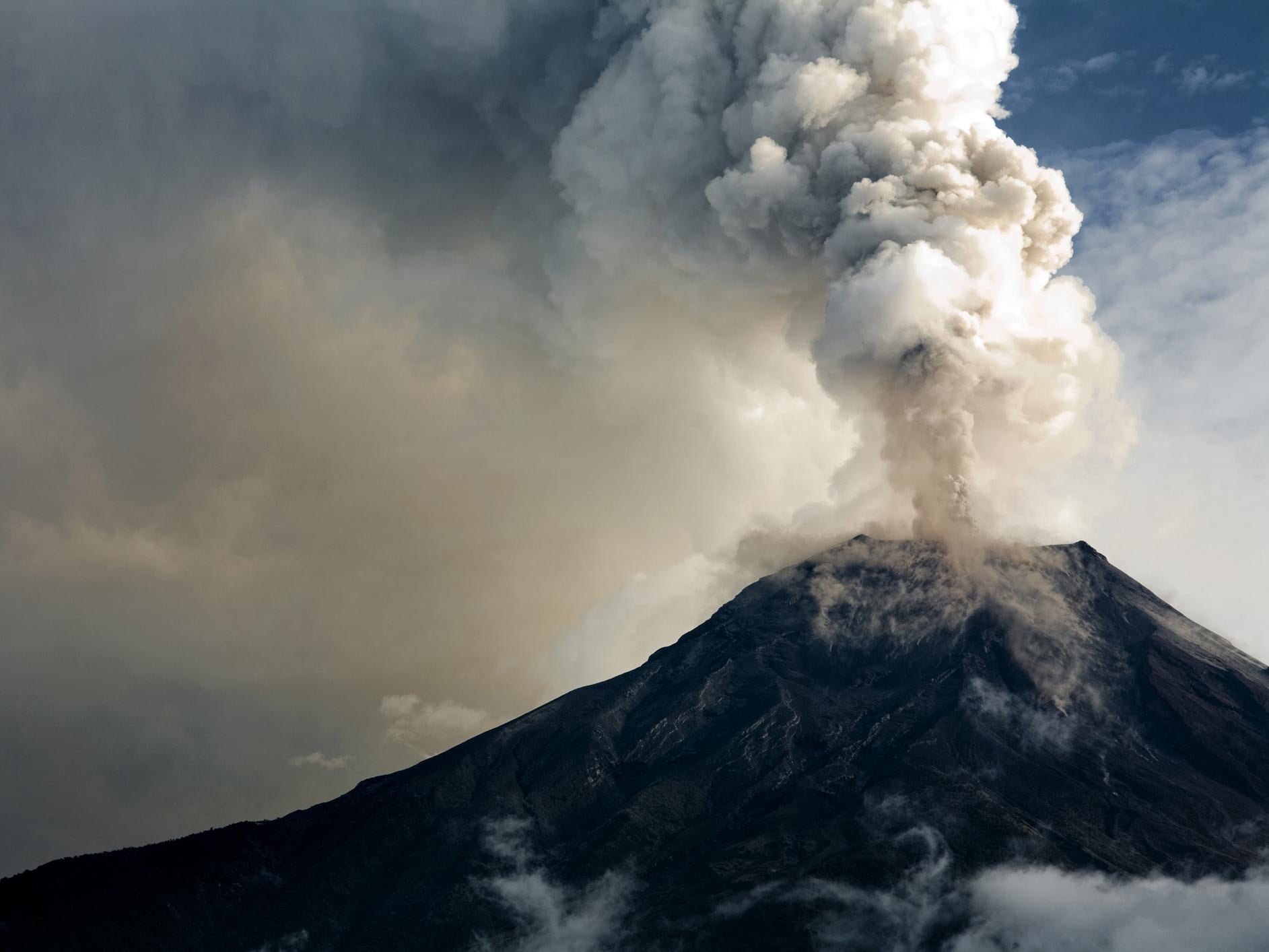First Europeans survived climate change following ‘super-eruption’ by working together, say archaeologists
Experts suggest we can learn from our prehistoric ancestors when tackling changing climate today

Your support helps us to tell the story
From reproductive rights to climate change to Big Tech, The Independent is on the ground when the story is developing. Whether it's investigating the financials of Elon Musk's pro-Trump PAC or producing our latest documentary, 'The A Word', which shines a light on the American women fighting for reproductive rights, we know how important it is to parse out the facts from the messaging.
At such a critical moment in US history, we need reporters on the ground. Your donation allows us to keep sending journalists to speak to both sides of the story.
The Independent is trusted by Americans across the entire political spectrum. And unlike many other quality news outlets, we choose not to lock Americans out of our reporting and analysis with paywalls. We believe quality journalism should be available to everyone, paid for by those who can afford it.
Your support makes all the difference.Remains from a 40,000-year-old site have given archaeologists insight into how our ancestors dealt with prehistoric climate change.
On a number of occasions throughout humanity’s history, volcanic “super eruptions” have caused catastrophic changes to weather and climate with the potential to wipe humans from entire regions.
However, new analysis of a site in Liguria, north west Italy, suggests our ancestors were able to flourish despite just such a crisis unfolding nearby.
According to the archaeologists working at the site, humans today can take lessons from our distant ancestors in contemporary approaches to tackling climate change.
“Liguria is where some of the first Homo sapiens, more or less our direct ancestors, lived in Europe,” said Professor Julien Riel-Salvatore, an archaeologist at the University of Montreal who co-authored the study with his Italian colleague, Dr Fabio Negrino.
“They came after the Neanderthals, and unlike them, when they were faced with sudden changes in their climate they didn’t go locally extinct or abandon the region – they adapted.”
After around 1,000 years of human settlement, the European region was thrown into disarray by a super-eruption in the volcanic Phlegraean Fields, located down the coast from Liguria in southern Italy.
Volcanic eruptions can have significant effects on climate as the ash and gases they emit into the atmosphere can cause havoc with regional temperatures and weather patterns.
Such was the scale of the Phlegraean Fields eruption that archaeologists have suggested it played a significant role in the replacement of Neanderthals with modern humans in Europe.
As for why our ancestors were able to adapt while their Neanderthal cousins could not, Professor Riel-Salvatore said his excavations of the Liguria site offered some clues.
“It used to be thought that this wiped out most of the early Homo sapiens in Europe, but we’ve been able to show that some were able to deal with the situation just fine,” he said.
“They survived by dealing with the uncertainty of sudden change.”
Analysis of ancient tools, ornaments and human remains from an ancient rock shelter revealed the region’s ancient settlers were interacting and trading with other groups in far-flung places.
Specifically, the researchers noted that some of the flint being used by the prehistoric Ligurians had its origins hundreds of kilometres away.
“They had a link to people living far away, so that if things went haywire in the territory where they lived, they had the social option of depending on people they’d built relationships with – the broader the network, the easier it was to survive,” said Professor Riel-Salvatore.
The study by Professor Riel-Salvatore and Dr Negrino was published in the Journal of Quaternary Science.
Their discovery adds to a broader body of work – including analysis of human settlements near the site of another super-eruption in Indonesia – that suggests prehistoric humans had an immense capacity to deal with potentially catastrophic events.
“This seems to be part of a pattern where humans are more adaptable and more resilient in the face of these enormously disruptive events,” said Professor Riel-Salvatore.
“These events can be really terrible, but only in a limited way, not across continents or globally.
Professor Riel-Salvatore said the works show that archaeology is able to “inform the more immediate issues we face” when it comes to climate change today.
As world powers realise the global challenge presented by climate change, more focus has been placed on collaborative efforts such as the Paris climate agreement to address the challenges we face.
“Cooperation and resilient social networks were really key in helping people ride out dramatic climate change in the past,” he said.
“Considering some of the challenges we’re facing nowadays, and some of the entrenched positions we have to deal with, maybe this notion that cooperation is fundamental is something we can communicate as a take-home lesson.”
Join our commenting forum
Join thought-provoking conversations, follow other Independent readers and see their replies
Comments